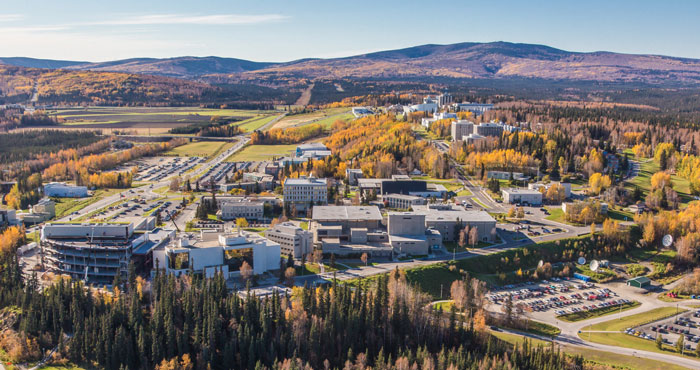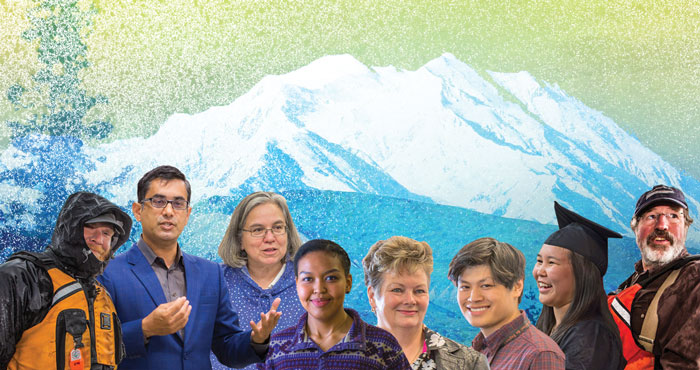Research Home

UAF workshop will look at Alaska's geologic hydrogen
October 25, 2024
Reshaping Alaska's energy future with geologic hydrogen is the subject of a three-day workshop next week hosted by the University of Alaska Fairbanks Geophysical Institute and the U.S. Arctic Research Commission.
Weasels are cute, natural-born killers
October 25, 2024
Weighing as much as a cup of walnuts and resembling a squeaky dog toy, the short-tailed weasel is easy to underestimate.
Denali climbed, its snow sampled for plastics
October 21, 2024
Two mountaineers who are also University of Alaska Fairbanks students were successful in their attempt to reach the top of North America's highest peak in summer 2024.

Surprising genetic differences found in Iliamna Lake harbor seals
October 17, 2024
In Alaska, harbor seals thrive in the chilled water of Iliamna Lake, sliding their blubbery bodies onto floating pieces of ice for a winter rest. This group of round-eyed water dwellers has remained a mystery for years, but now, in partnership with local Indigenous communities, scientists have found surprising genetic differences in the seals.
 Fairbanks is central to science
At 120 miles south of the Arctic Circle, the Fairbanks campus is well situated for northern research. UAF research in arctic biology, engineering, geophysics, supercomputing, and Alaska Native studies is renowned worldwide. UAF ranks in the top 150 of nearly 700 U.S. institutions that conduct research. UAF has ranked in the top 11 of more than 10,000 institutions worldwide for number of citations in climate change publications. |
 Your discoveries support Alaska
University researchers work to combat challenges Alaskans face on a daily basis. We are helping Alaskans live more comfortably and safely with a secure future by bringing research dollars into the state. More than 80% of the university’s research is directly related to Alaska. To support research innovation, the University of Alaska hosts many professionally staffed laboratories with highly technical capacities. Our labs and field facilities are available to all scientists. |








